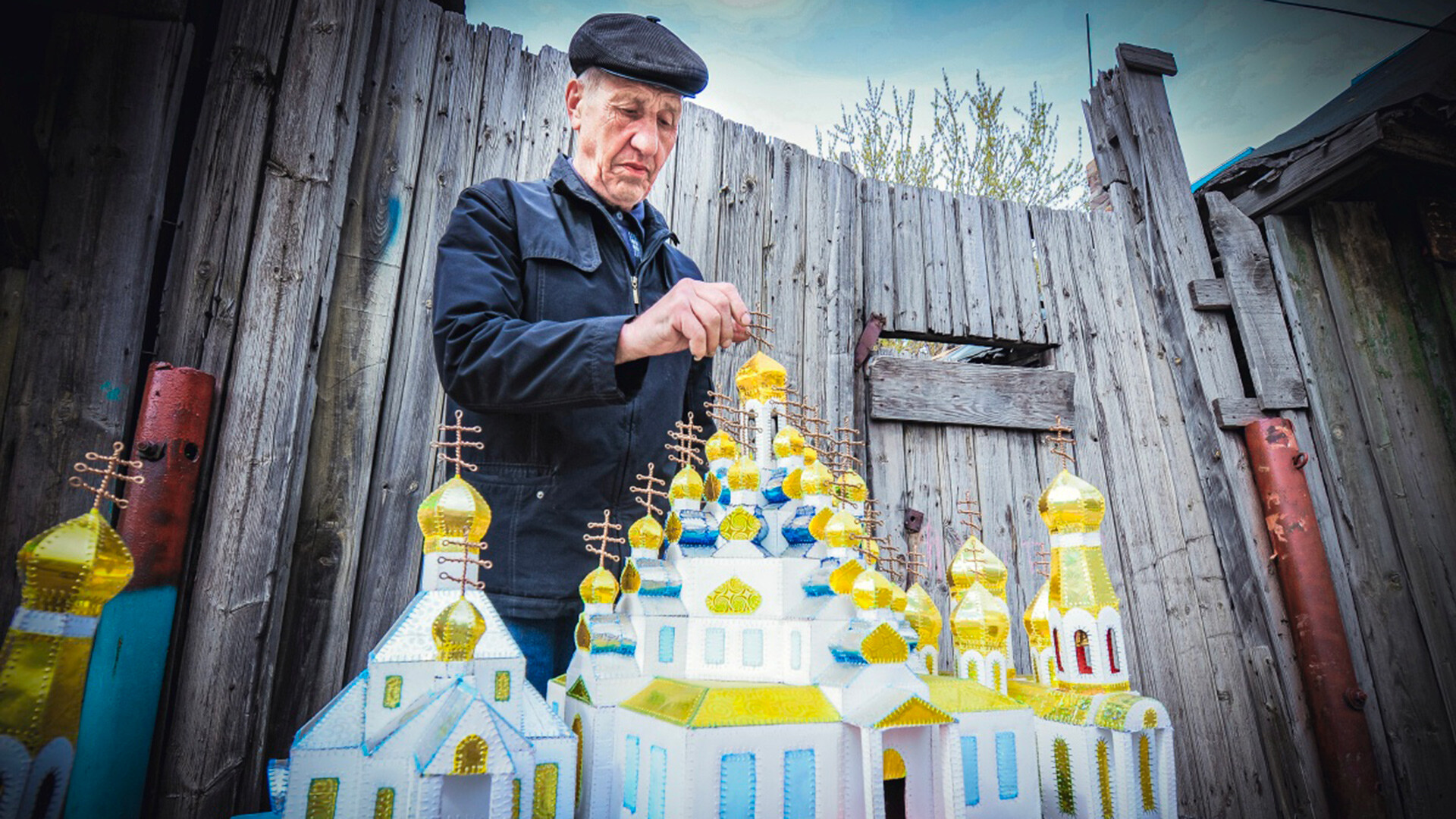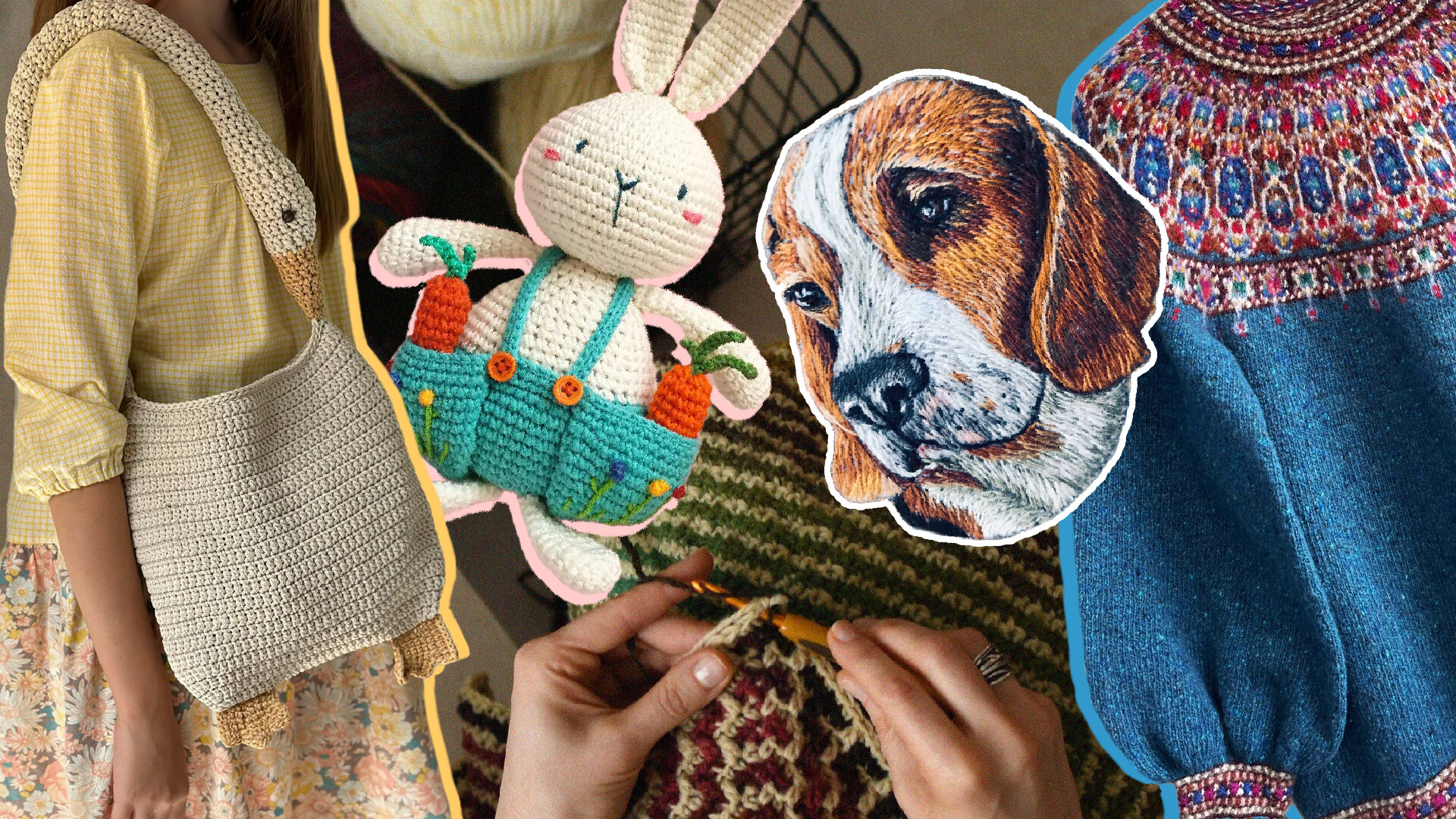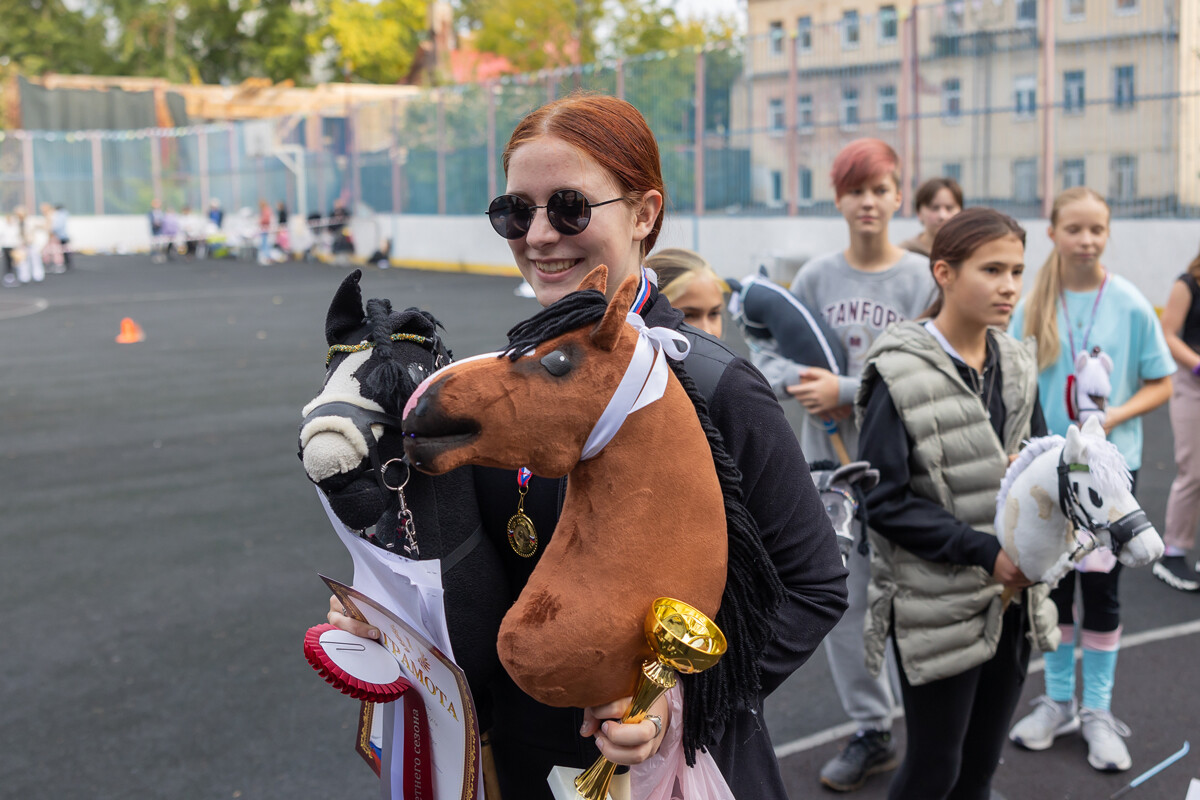
10 MAIN Russian hobbies
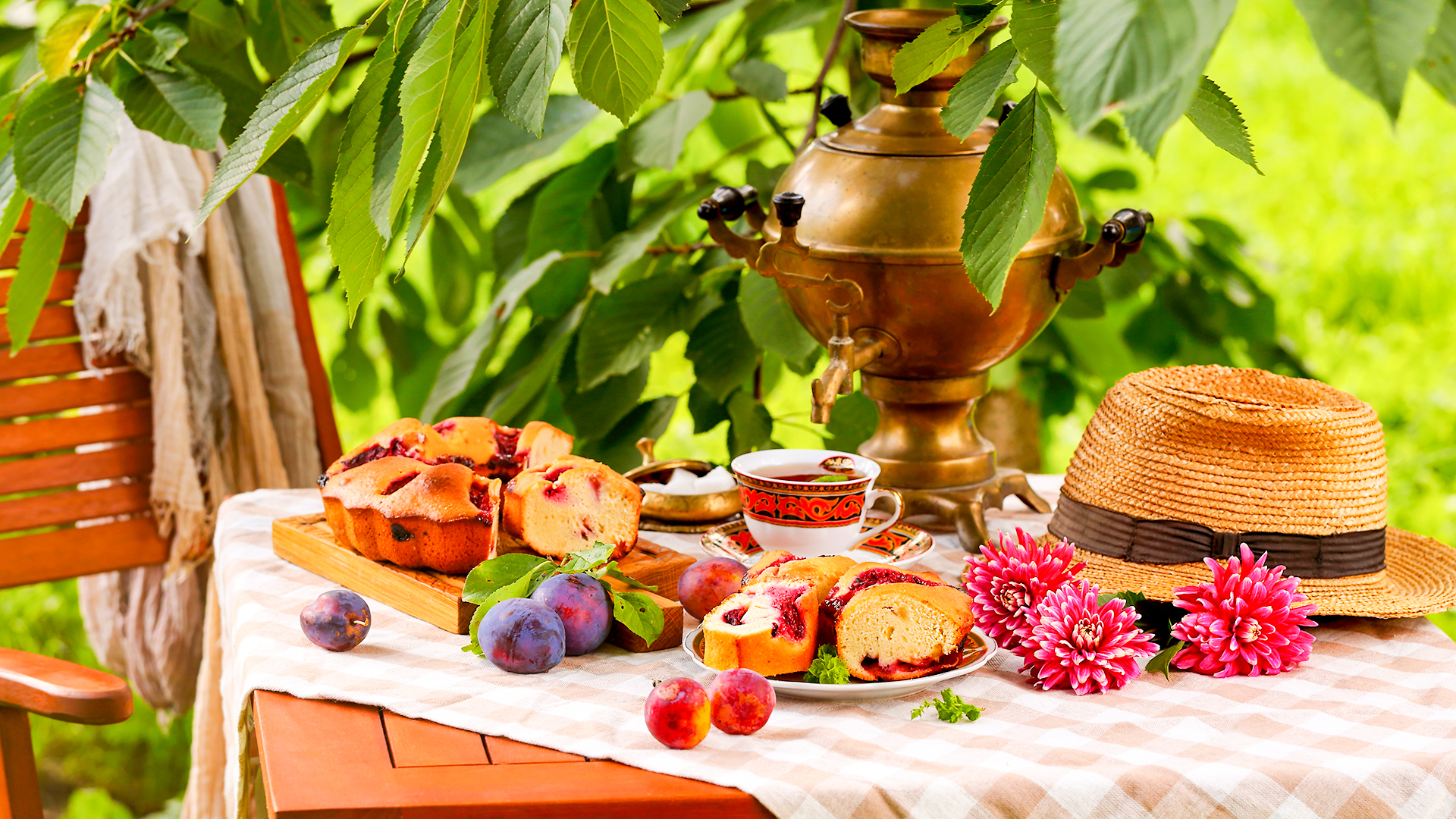
Dacha
The tradition of having a ‘dacha’ (aka country house) for summer living, less often year-round, goes back to the 18th century and the era of Peter I. The word ‘dacha’ comes from the verb ‘давать’ (‘davat’; ‘to give’). The nobility received their first land plots from the tsar. And, in Soviet times, citizens received them from the state. Over time, these huge land plots were replaced by smaller plots and palaces – by small houses, but, for at least two centuries, the ‘dacha’ occupied an important place in the lives of Russian city dwellers. It provided an opportunity to be in nature, served as a platform for all types of ‘shashlik’ ( grilled meat) cooked on a ‘mangal’ (barbeque), allowed people to acquire and practice gardening and landscape design skills, plant a vegetable garden, which, in Soviet times, greatly diversified the table and helped families save money. Also, the ‘dacha’ often implied swimming and fishing, if there was a pond, lake or river nearby, long bike rides, as well as trips to pick mushrooms and berries in the nearest forest.
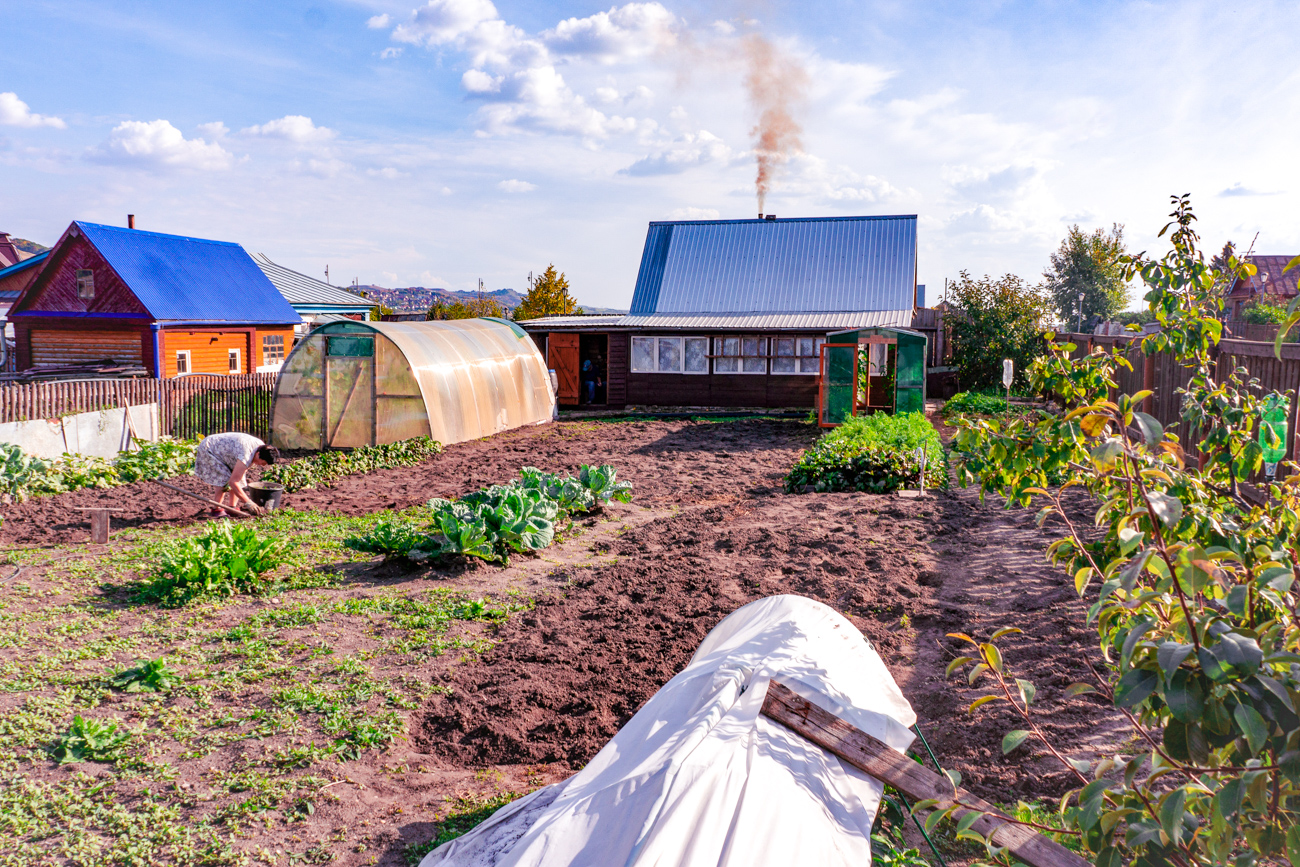
Picking mushrooms & berries
Russians have always loved picking wild mushrooms and berries – both in ancient times and now. This includes both city dwellers and villagers. The ability to walk in the forest and not get lost, as well as the ability to distinguish edible mushrooms from poisonous ones, have been passed down from generation to generation. ‘White’, ‘aspen’, ‘birch boletes’ – aka edible mushrooms – were usually picked for soups and dried out for the winter. Various ‘russula’, ‘chanterelle’ and ‘honey’ mushrooms, meanwhile, would be picked for frying with potatoes for dinner that same evening. Berries also required immediate processing: sorting, washing and drying. If you had a large freezer, you could divide them into portions and simply freeze them. If you didn’t have a freezer, the house smelled of jam for several days and the children were always covered in it.
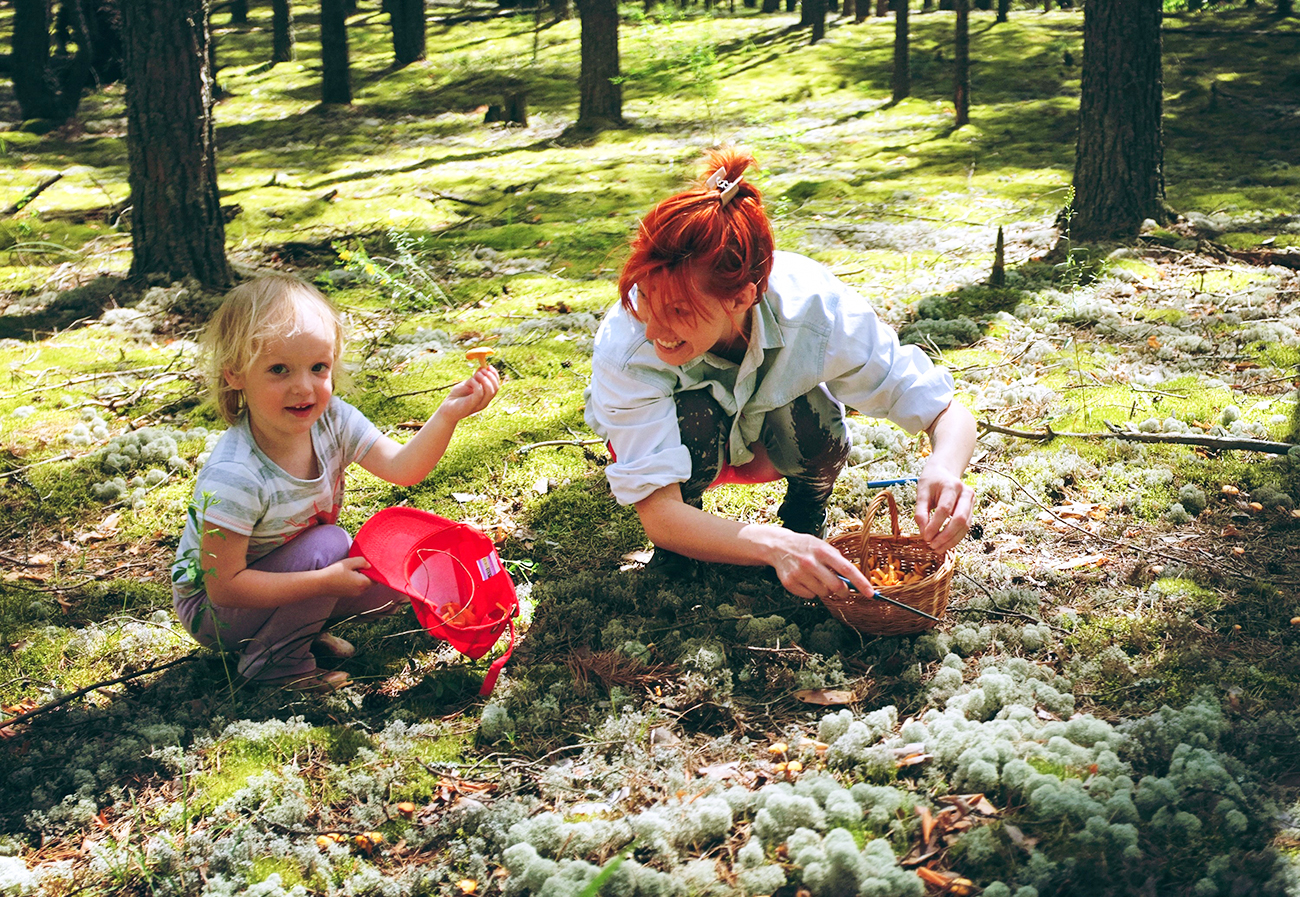
Fishing
This is an entire world and mostly male, although some women are also fully invested in it. Fishing can be unobtrusive – summer, countryside, with a fishing rod by the nearest pond, lake or river. It does not require any special skills, except for digging up earthworms, catching flies or rolling a bread ball, putting bait on the hook and… patience. On the other hand, there is, of course, professional fishing, with special equipment, which is better not to attempt without good skills. Such types of fishing include, for example, winter fishing, which, if done incorrectly, can even be deadly. However, in all cases, any catch is a reason for a fisherman's pride and dinner for the family.
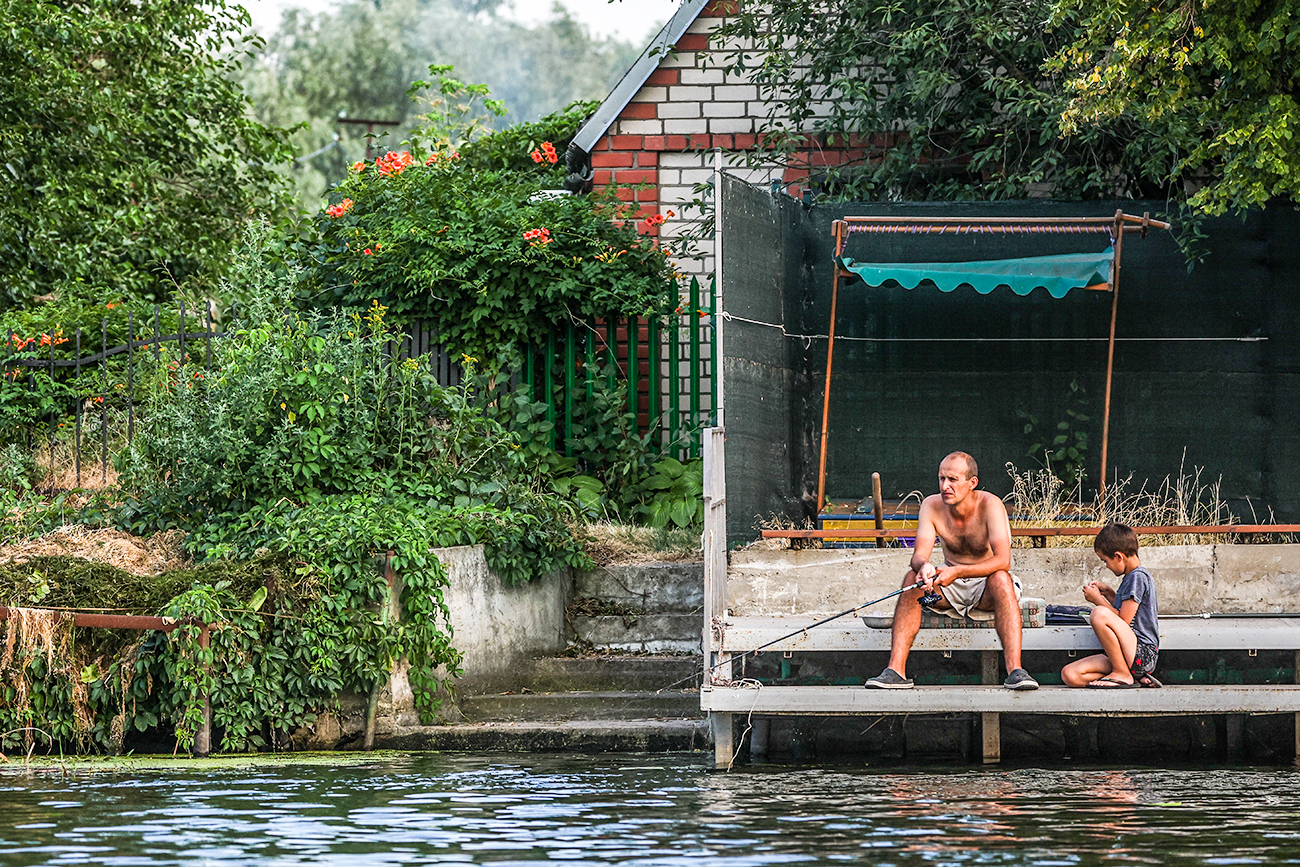
Pickling & canning
Russians have a passion for fermented and, in general, canned food. The practice of drying and curing mushrooms, berries, fruits and fish goes back to ancient times and is still very popular. Large-scale fermentation of vegetables in wooden barrels was replaced by a much smaller and more modest procedure – in household pots and jars found in the city kitchen, but this did not stifle the love for sauerkraut one bit.
And, finally, vegetable preserves, popularly called ‘zasolki’ or ‘zakrutki’ – a way to preserve cucumbers, tomatoes, zucchini, squash and other vegetables in brine for the winter. They can be grown with your own hands in the countryside or bought in a store or at the market, but a good housewife always has her own recipe, which she is proud of. By the way, berries and fruits are also canned in jars in the form of jam, preserves, marmalade and compotes.
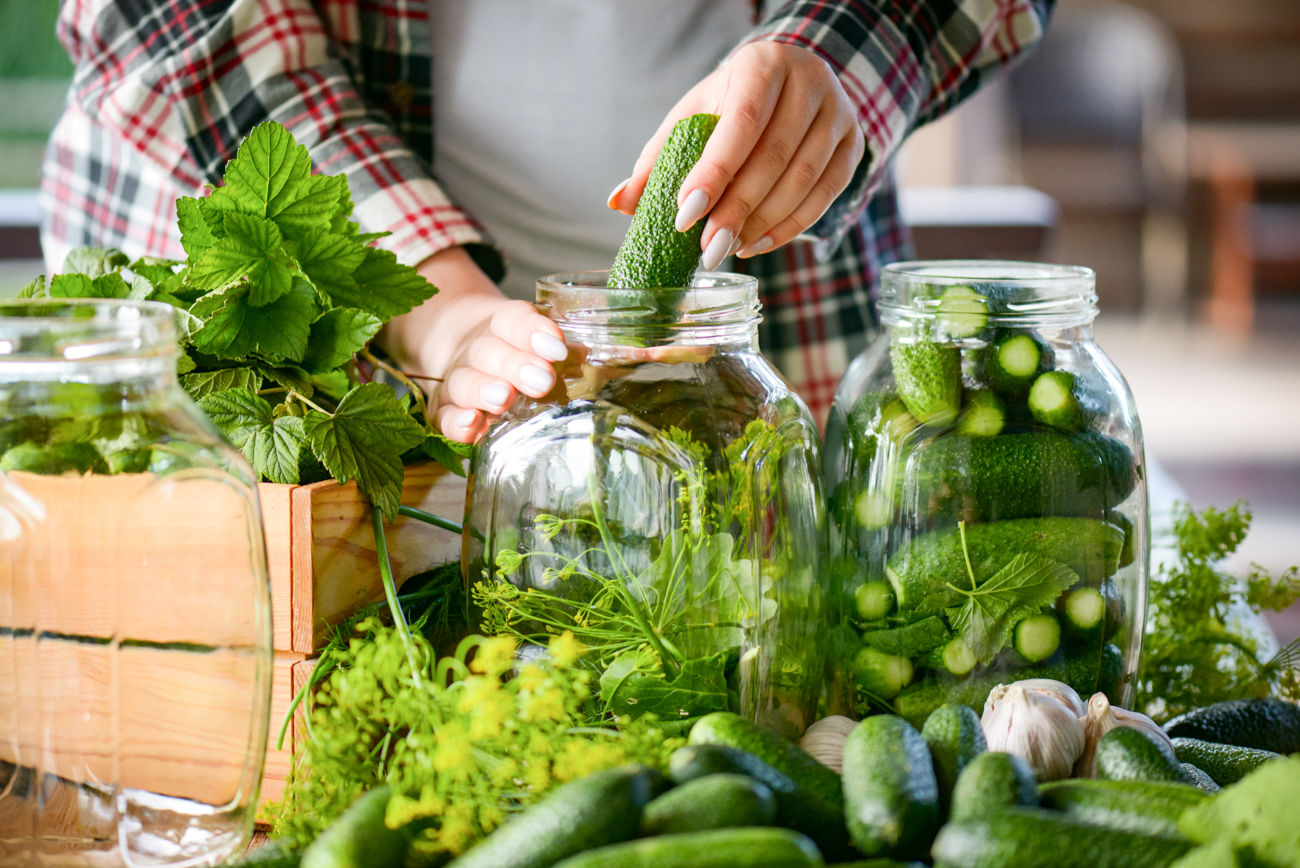
Camping
The desire for camping has nothing to do with the presence or absence of a ‘dacha’. You can either love a camping trip with all your heart or hate it with the same passion. The experience of pitching a tent, lighting a fire in the pouring rain, cooking food over an open fire, singing to a guitar and sanitary conditions that are indistinguishable from natural ones. Campers can set up camp in one place and live there for a while or they can go hiking long distances or rafting down rivers. This type of recreation requires considerable physical endurance and a certain amount of dedication. There are many intrepid people among Russians – and camping is very popular. For the faint-hearted, there is a compromise – ‘glamping’, which is becoming more and more common in Russia.

Knitting & other needlework
A Russian stereotype is that of a grandmother in reading glasses, with a gray hair bun, bent over knitting. But, it has long been not only grandmothers who knit. In a Soviet family, women usually knew how to sew, knit and crochet, while some craftswomen also knew how to embroider – otherwise, with a constant shortage of clothes availability in stores, it was difficult to maintain a fashionable wardrobe.
These shortages have long since disappeared, but the pleasure of handicrafts has not gone anywhere and has even reached new levels. Now, knitting, embroidering, sewing toys or weaving rugs from natural materials is considered not only useful, but also prestigious. Many of such craftswomen now conduct master classes and sell the results of their works online.
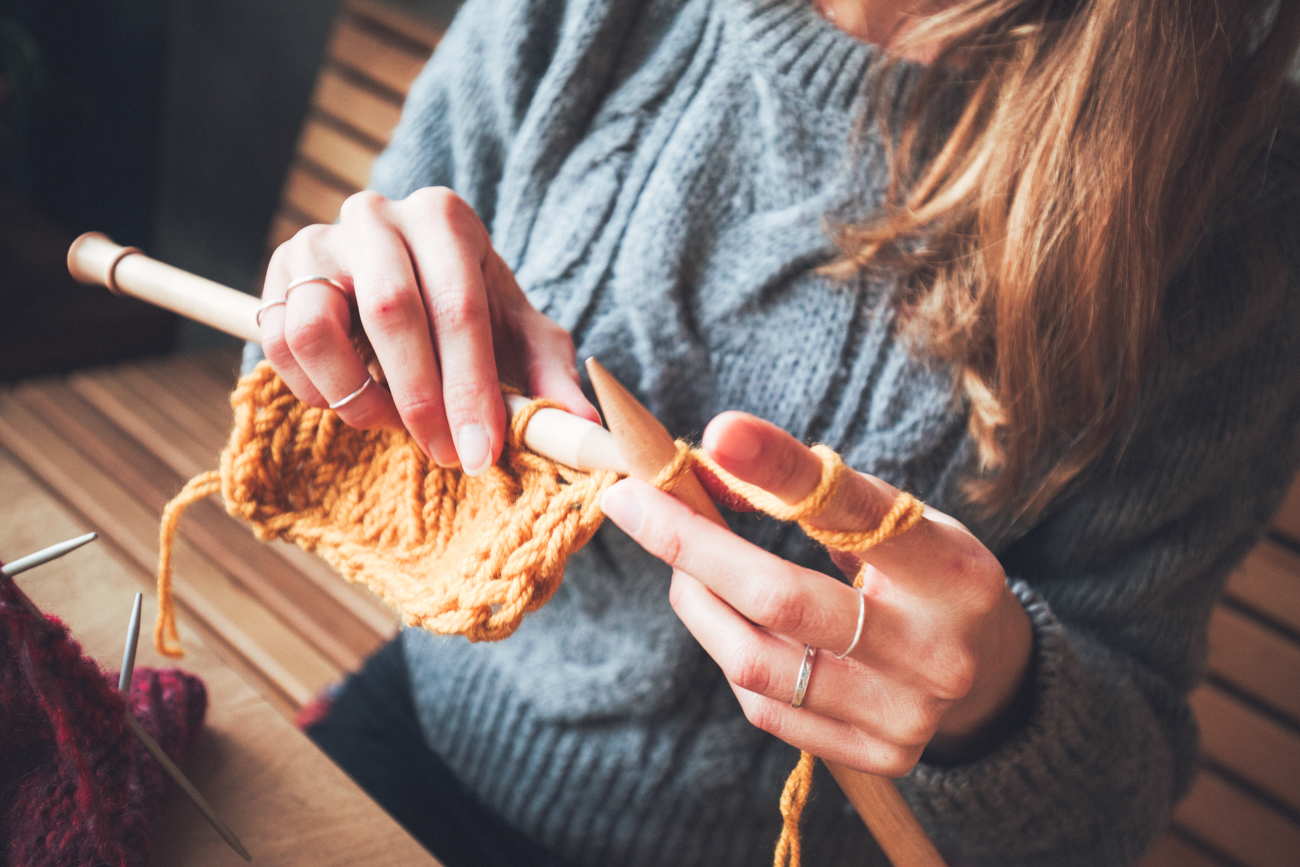
Reading
Thanks to its many classic writers, Russia has been at the forefront of literature and the love for books has not faded. Except that some people now not only read them, but also listen to them – while driving to work, during walks in the park or in the gym on a treadmill. The ‘Russian Book Chamber’ reports that the publication of books and brochures in 2024 amounted to 103,277 titles, while the total circulation was 369.6 million. Russians also enjoy going to annual book fairs and festivals, as well as attending numerous meetings with writers in bookstores. And, if you read book forums in Russian, you’ll see many emotional literary discussions that could even turn into a real fight if they did not take place online!

Chess
This sport has always been very popular among the masses and is now experiencing a second renaissance. It’s no longer only entertainment for intellectual old men in summer parks or educated middle-aged men who want to while away their free time in company, but also an educational game for smart and talented schoolchildren. Children's chess clubs are extremely popular throughout Russia, where children solve chess problems, play tournaments, receive ranks and are incredibly proud of it.

Tea drinking
Russians always drink tea, everywhere and for any reason, despite the numerous coffee shops on every corner. They drink tea before, during and after breakfast, before, during and after lunch, at 5 pm, after dinner, as well as a cup before bedtime. Even in the summer heat, winter frosts and slush of the off-seasons. Almost like the British, with the only difference that different tea traditions coexist comfortably on the spacious Russian territory, without interfering with each other. Russians can brew smoked lapsang souchong and milky oolong or herbal tea with equal pleasure and can add thyme to assam! They drink tea neat, with sugar, honey, lemon, berries, jam, and milk. Most often hot, but iced is now increasingly popular.
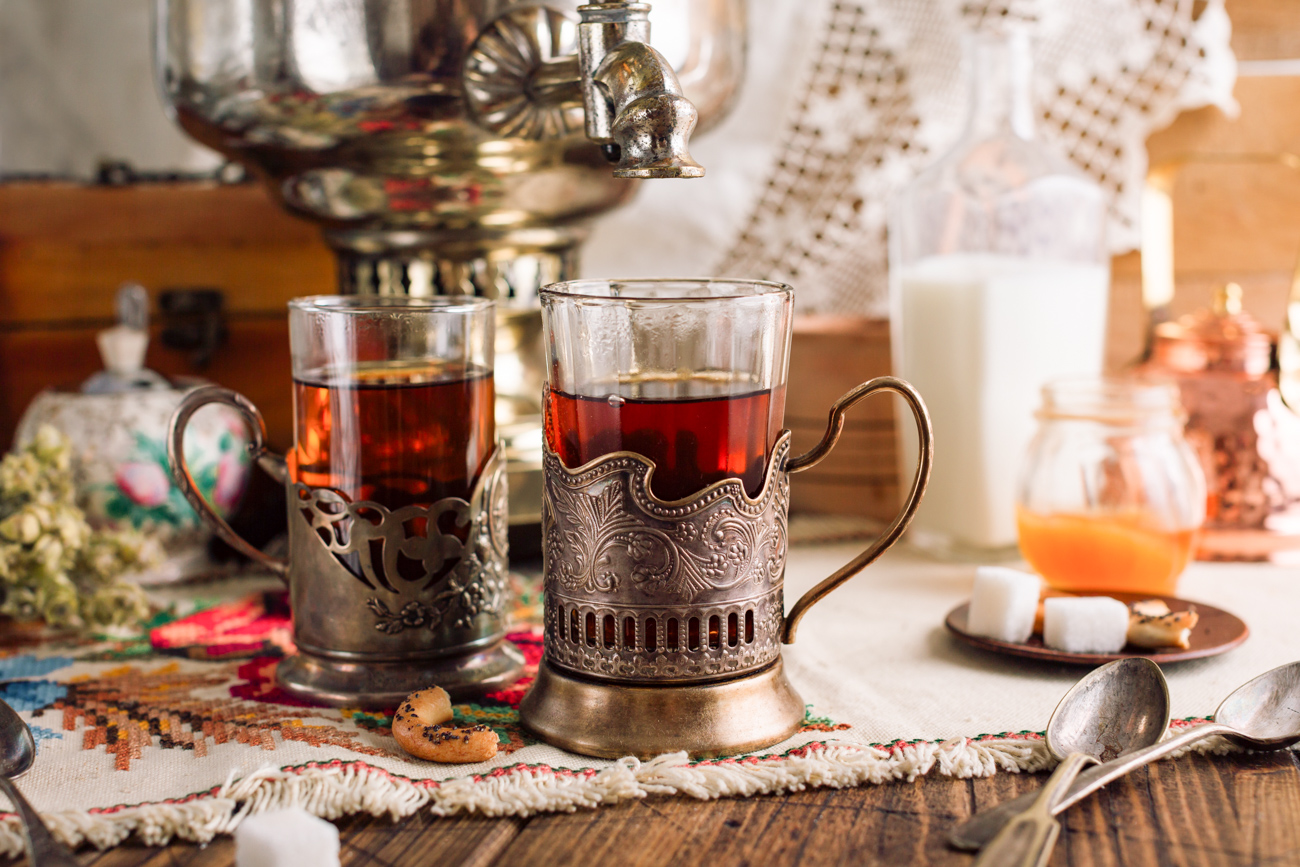
Clothing & personal care
The global demand for ‘normcore’ (the unisex fashion trend characterized by unpretentious, average-looking clothing), of course, did not pass Russia by. But, the love for beautiful unique clothes and individual self-care is not alien to Russians, especially women. Visits to a beauty salon are a regular, separate monthly expense item for most Russian women: manicure, pedicure, cosmetology, hair care and massage are the most common procedures. Men are not far behind and regularly visit barbershops and tanning salons. And both men and women go to gyms with equal enthusiasm and train in parks in the fresh air, believing that a beautiful body is no less important.



